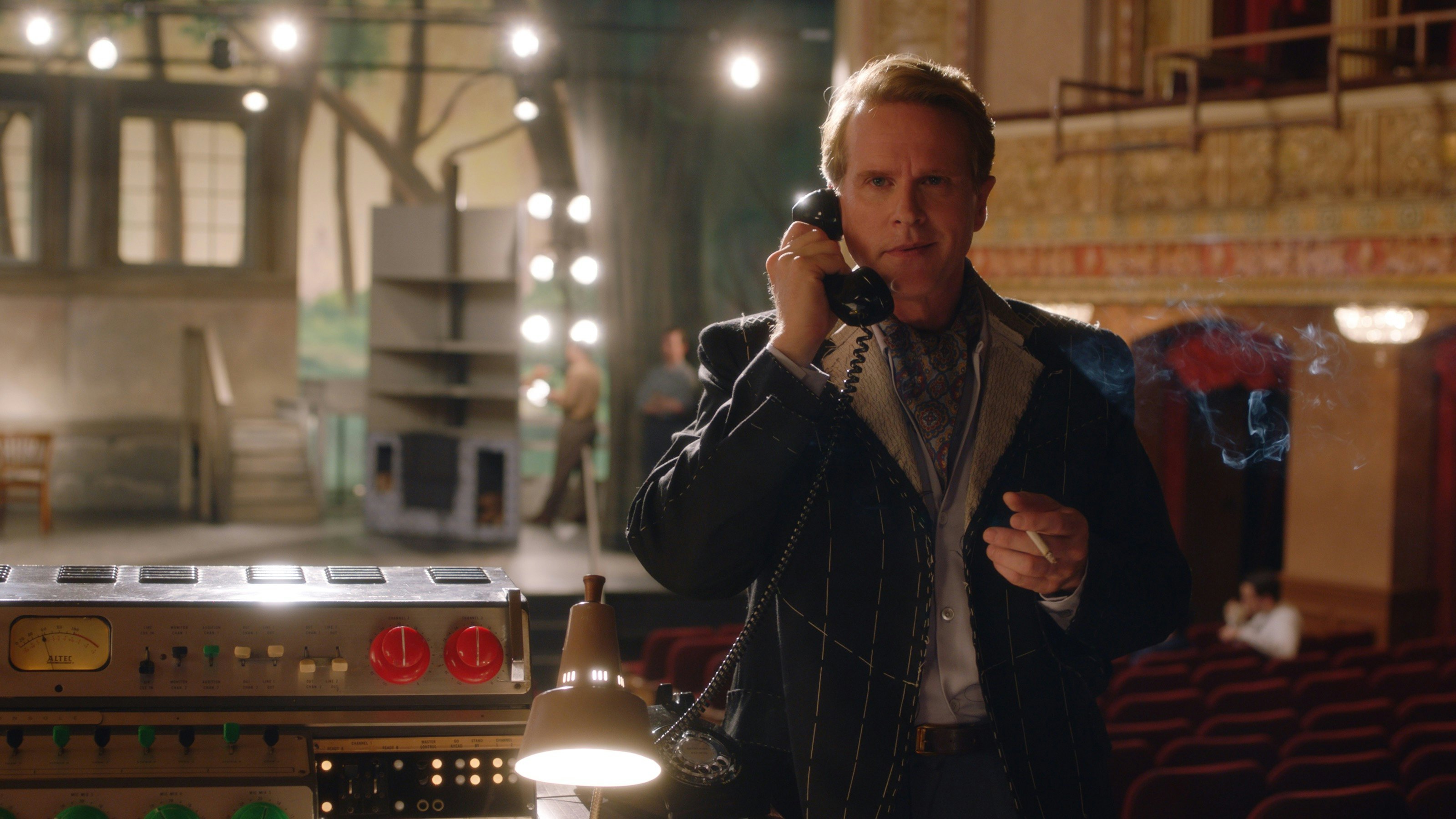The Marvelous Mrs. Maisel started as a show about a female comic who accidentally becomes a hit in late 1950s New York City. But since then the show has begun to expand. Sophie Lennon (Jane Lynch) was initially introduced as a villain in Season 1, as a socialite who performs under a persona and blacklisted Midge for revealing her secret. But since then, the show has delved deeper into Sophie. This season is taking her to Broadway in Miss Julie. But is Miss Julie a real show? Warning: Spoilers for The Marvelous Mrs. Maisel Season 3 follow.
Season 2 of The Marvelous Mrs. Maisel ended with Sophie asking Susie if she will be her manager as well after she sees the success Midge is having. Season 3 opens with Susie hedging on the subject, but ultimately agreeing.
Unfortunately, Sophie didn’t mention she’s already under contract with representation and will be for another five years. Her manager, Harry Drake, points out that he will take a fee percentage off Susie’s bookings for nearly everything.
There are exceptions. Local commercials, for one, and Broadway plays for another. And Sophie wants to play Broadway, as Miss Julie, the titular role in a play by August Strindberg. She wants Susie to make it happen. Susie busts her butt to get it done, even managing to land Gavin Hawke (Cary Elwes), the great British thespian as her co-star.
But is this a real show? After all, the songs in The Marvelous Mrs. Maisel Season 3 were created especially for the series. It stands to reason the play-within-the-show would be as well.
But Miss Julie is a real play. It was written by August Strindberg, the Swedish dramatist who is one of history’s most celebrated playwrights, in 1888. It’s one of the earliest versions of what’s known as "naturalistic" drama (focused on realistic characters in true-to-life situations). Over a single night, Miss Julie, the daughter of a Count, falls in love with her father’s valet, Jean, who she then sleeps with. They consider running away together, but Christine (the household cook) orders the stablemen not to give them horses, and when the Count returns home, their plans collapse. It ends with Julie committing suicide in despair.
The play is famous for the many adaptations made of it over the century since it was published, from Broadway to opera to ballet.
Moreover, Mrs. Maisel‘s choice of the show is not accidental. It is the early 1960s in the show’s timeline, and a revival staging of Miss Julie opened at the Cort Theatre in 1962. It was performed by Swedish actors, not a comedian attempting to refashion herself as a dramatic actress. But the period faithfulness of the adaptation is spot on for the time.
Source: Read Full Article



